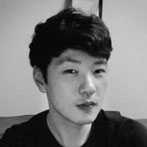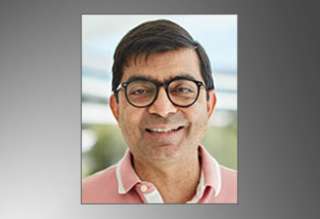A ‘Scholar in the Making’: Student Member Sean Young reflects on his time with the IEEE Signal Processing Society
Top Reasons to Join SPS Today!
1. IEEE Signal Processing Magazine
2. Signal Processing Digital Library*
3. Inside Signal Processing Newsletter
4. SPS Resource Center
5. Career advancement & recognition
6. Discounts on conferences and publications
7. Professional networking
8. Communities for students, young professionals, and women
9. Volunteer opportunities
10. Coming soon! PDH/CEU credits
Click here to learn more.
A ‘Scholar in the Making’: Student Member Sean Young reflects on his time with the IEEE Signal Processing Society
A self-proclaimed “scholar in the making,” SPS Student Member Sean Young credits his growth in the field to his time with the Society. From connecting with like-minded individuals to attending conferences, Sean recognizes the impact it’s had on his career and his research. To kick off Engineers Week (running from February 19-25, 2017), we spoke with Sean about his journey with SPS, his future in the field, and what advice he’d offer to those just getting started.
- Tell us about yourself: What did your job entail as a visiting researcher?
In my role, I handle research related to future video coding. It is often quoted that 70% of total Internet traffic is attributed to video streaming. More efficient coding of video signals can therefore help free up the information highway.
- How has the IEEE Signal Processing Society impacted your professional growth?
On many occasions, SPS has provided me with opportunities to meet and interact with professionals in the industry, such as [Student Career] Luncheons. One such interaction with a principal engineer led to a phone conversation with him, and I soon found myself working with him and his team. I believe that research must keep itself in check to stay useful. Being engaged with professionals in the industry is one way of achieving this.
- What has been your favorite part of being an SPS member?
All SPS members more or less share the same interests, so chances are, no matter who I strike a chat with, the two of us click. This has been my experience year after year, conference after conference. Some of the bonds I have formed with other SPS members as a result will last a lifetime.
- What part of signal processing do you find most interesting? Or, what excites you most about the future of signal processing?
I think the term "signal processing" is purposely vague (to a certain degree). Almost anything can be regarded as a signal if seen through the right lens. To me, the field of signal processing is a crossbreed of many related disciplines of research -- numerical optimization, machine learning and computer vision, to name a few. I find it exciting that the tools and techniques one learns in signal processing can be applied in many different disciplines, and grow along with these related disciplines.
- How important has mentorship been to you? Do you think this is a crucial aspect of succeeding in the SPS field?
As a scholar still in the making, I believe the advice of those who have "already made it" can have a huge impact on one's career, and moreover the research and work itself. Sometimes the advice from an advisor is very focused -- specific to the research work currently in progress -- so one would like more general advice from those who are more distanced from research work. I have been fortunate to interact with some of the leading researchers in signal processing, and every piece of advice I received helped to shape my views on and attitude toward research. I am grateful they all had a heart to spare a moment and chat with me.
- As a young professional, what advice would you give to a student studying signal processing?
Although hardly my own advice, I would say, read broadly across many related fields (classical signal processing included) to really see how one concept is reinforced by another in a related field. These days, most published books in signal processing also have free online versions so being a poor student is no excuse for not being able to afford to read!
ABOUT SEAN I. YOUNG
 Sean I. Young (S’12) received the BE (Honors) degree from The University of Auckland, New Zealand in 2008, and the MEngSc degree from The University of New South Wales (UNSW), Australia in 2012. He is currently pursuing the PhD degree in electrical engineering at UNSW. In 2016 he was a visiting scholar at InterDigital Communications LLC, San Diego, California where he worked on future video coding. His main areas of research interest include image and signal processing and large-scale mathematical optimization.
Sean I. Young (S’12) received the BE (Honors) degree from The University of Auckland, New Zealand in 2008, and the MEngSc degree from The University of New South Wales (UNSW), Australia in 2012. He is currently pursuing the PhD degree in electrical engineering at UNSW. In 2016 he was a visiting scholar at InterDigital Communications LLC, San Diego, California where he worked on future video coding. His main areas of research interest include image and signal processing and large-scale mathematical optimization.
SPS on Twitter
- DEADLINE EXTENDED: The 2023 IEEE International Workshop on Machine Learning for Signal Processing is now accepting… https://t.co/NLH2u19a3y
- ONE MONTH OUT! We are celebrating the inaugural SPS Day on 2 June, honoring the date the Society was established in… https://t.co/V6Z3wKGK1O
- The new SPS Scholarship Program welcomes applications from students interested in pursuing signal processing educat… https://t.co/0aYPMDSWDj
- CALL FOR PAPERS: The IEEE Journal of Selected Topics in Signal Processing is now seeking submissions for a Special… https://t.co/NPCGrSjQbh
- Test your knowledge of signal processing history with our April trivia! Our 75th anniversary celebration continues:… https://t.co/4xal7voFER










